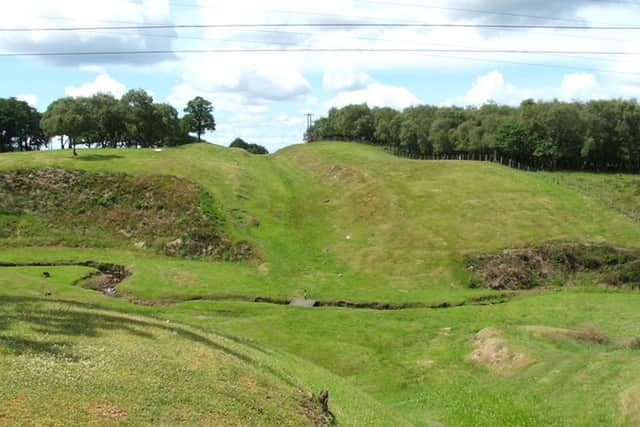Antonine Wall metal detectorists sought by police
Evidence of illegal metal detecting was found by Rough Castle near Bonnybridge with ground disturbed sometime between March 8 and 15.
A spokeswoman for Police Scotland said: “The assumption is that people have been there trying to find relics.”


Advertisement
Hide AdAdvertisement
Hide AdRough Castle is considered to be the best-preserved section of the Antonine Wall the most north-westerly frontier of the Roman Empire which spanned around 37 miles between the Firth of Forth and the Firth of Clyde.
Metal detectorists are known to have illegally searched around the wall in the past.
As a Scheduled Monument, anyone wanting to use a metal detector around the Antonine Wall needs permission from Historic Environment Scotland.
Those using a metal detector at such a site without permission faces a fine of up to £1,000 with penalties rising to £10,000 for those found removing items.
A spokeswoman for Historic Environment Scotland said: “HES staff recently discovered evidence of unauthorised metal detecting at Rough Castle, one of the best-preserved sections of the Antonine Wall and, protected as a scheduled monument.
“Our staff carry out regular monitoring and safeguarding of the Antonine Wall and are constantly on the lookout for any signs of metal detecting and those who commit such offences.
"As an enforcement agency under the Ancient Monuments and Archaeological Areas Act 1979, HES work closely with the police to investigate and report offences.
“Metal detecting on a scheduled monument without consent is a heritage crime which can lead to irreparable damage to our precious historic assets and, cause us to lose pieces of our past forever.
Advertisement
Hide AdAdvertisement
Hide Ad“We are currently dealing with this incident in line with our enforcement policy and assisting Police Scotland with their enquiries, and we would urge anyone with information regarding this incident to contact Police Scotland on 101.”
Heritage crime in Scotland is known to be on the rise. In 2019, around 100 cases of heritage crime were under investigation by Historic Environment Scotland (HES) and police. In the five years before, there were a total of 40 cases.